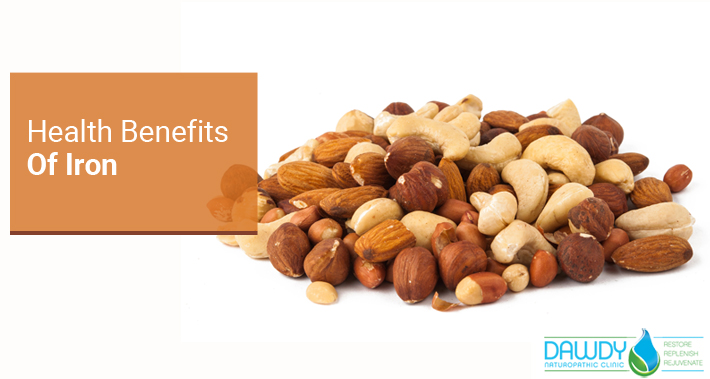Avoiding Endocrine Disturbing Chemicals
In our everyday lives, we sometimes come across substances that can be harmful without even knowing.
Some of these are what’s known as endocrine disrupting chemicals.
These chemicals hide in things like food packaging, personal care products, and even the air we breathe.
And they can cause issues with your hormones.
As an Ottawa naturopathic doctor, I’m interested in helping you maximize your overall health.
So let’s take a closer look at some of these endocrine disrupting chemicals, where you can find them, and how you can avoid them.
What Is Your Endocrine System?
Your endocrine system is a complex system which plays an important role in keeping you healthy and happy.
It’s made up of a series of organs and glands throughout your body that release hormones into your bloodstream.
This acts as a sort of communication system, telling different parts of your body how to perform.
These include:
- Your thyroid
- Your parathyroid
- Your adrenal glands
- Your pituitary gland
- Your sex organs
- Your hypothalamus
- Your pineal gland
- And others
These hormones play a role in your metabolism, immunity, reproductive system, mental health, and more.
How Do Endocrine Disturbing Chemicals Work?
Endocrine disturbing chemicals work by disrupting the functions of your endocrine system, regulating the production and release of hormones in your body.
They can do this by either blocking your hormone receptors, or disrupting your natural signaling process.
Either way, these chemicals can inhibit your hormones from working the way they should.
According to the National Institute of Environmental Health Sciences, you can be exposed to endocrine disruptors through food, beverages, pesticides, and cosmetics.
What Are The Most Common Endocrine Disturbing Chemicals?
As far as endocrine disturbing chemicals are concerned, it’s important to recognize the most common ones which can have adverse impacts on your health.
Below, we’ll take a look at 12 of the most common ones.
These chemicals can enter your body through ingestion, inhalation, or skin contact.
1. Bisphenol A (BPA)
BPA is commonly found in various consumer goods like food wrap, plastics packaging, and thermal paper receipts.
BPA imitates the hormone estrogen, resulting in potential endocrine disruption.
Studies have shown exposure to BPA is linked to a range of health problems.
This includes hormonal imbalances in women as well as men, reproductive issues, developmental disorders, and an increased risk of certain cancers.
To reduce exposure to BPA, choose products free from BPA, such as glass and stainless steel containers, and select products labelled ‘BPA free’.
As well, decline receipts when you’re able – you can absorb the BPA in them through your skin.
2. Dioxins
Dioxins are highly toxic and are produced as byproducts of industrial processes, such as waste incineration and chemical manufacturing.
These compounds can accumulate in fatty tissues after entering the food chain through contaminated soil, water and air.
They’re also known carcinogens.
To minimize exposure to dioxins, avoid burning household wastes, and support measures for proper waste management and reducing industrial emissions.
3. Lead
Lead, a toxic heavy metal, can be found in old paints, contaminated soil, and old plumbing.
Besides affecting your nervous system, lead can disrupt your endocrine system by binding to hormone receptors.
This causes imbalances in hormone production, release and signalling.
Lead exposure is associated with fertility issues, developmental abnormalities and compromised immunity.
If you’re pregnant, you’re especially vulnerable to lead exposure, as are young children.
Vitamin C has been shown to lower your blood lead levels, but the best solution is to just avoid it in the first place.
If your home was built before 1990, it may have some lead paint – some contractors have X ray equipment that can detect these levels.
You can also have your tap water tested for lead levels.
Keep an eye on any consumer recalls as well.
4. Mercury
One major concern about mercury is its ability to accumulate in the food chain, particularly fish and seafood.
On top of its neurological effects, mercury exposure can disrupt your endocrine system, leading to reproductive disorders and thyroid dysfunction.
Limiting the consumption of high mercury fish, such as king mackerel and swordfish, can help reduce your mercury exposure.
This is especially important if you’re pregnant or have young kids.
5. Organophosphate Pesticides
Organophosphate pesticides are highly toxic and widely used in agriculture to protect crops from pests.
Exposure to these pesticides can impact the endocrine system, interfering with reproductive hormones, thyroid hormones and stress hormones.
This is particularly important to avoid if you’re pregnant or have young children.
To minimize exposure to these pesticides, choose organic produce and support eco friendly agricultural practice.
6. Fire Retardants
Certain types of fire retardants like polybrominated diphenyl ethers (PBDEs) are widely used in consumer goods.
Some examples include electronics, furniture and textiles.
Over time, these chemicals can accumulate in your body, disrupting the endocrine system.
To reduce exposure to these chemicals, choose products free from PBDEs and support regulations to restrict the use of harmful fire retardants.
7. Arsenic
Arsenic can be found in groundwater, soil, rice, cereal grains, and other foods.
Even low levels of exposure of arsenic over time can have detrimental effects on your cardiovascular and respiratory systems.
And of course, it disrupts the normal functioning of your endocrine system.
To reduce exposure, be sure to drink clean water, have your water tested for arsenic levels, and avoid foods from contaminated sources.
8. Atrazine
Atrazine is a widely used herbicide to control weeds in crops.
It’s been linked to exposure to hormone related disorders and reproductive abnormalities.
To reduce exposure to atrazine, support sustainable and organic farming practices, and be mindful of pesticide usage for weed control.
9. Perfluorinated Chemicals (PFCs)
Perfluorinated chemicals (PFCs) are usually used in industrial and consumer goods to make them stain and grease resistant, and waterproof.
Examples of these include non stick cookware, stain resistant fabrics and carpets, and water and oil repellents.
These chemicals can accumulate in your body over time, causing disruptions to your endocrine system.
This can appear as endocrine related cancers, as well as developmental disorders in your baby if you’re pregnant.
To minimize exposure to PFCs, use natural fibres, avoid using non stick cookware at high temperatures, and choose alternatives without stain or water resistant treatments.
10. Perchlorate
Perchlorate is a chemical compound primarily used in fireworks, explosives, rocket fuel, and some industrial processes.
Perchlorate can contaminate oil, water and food sources.
The chemical has been found in drinking water and food especially in milk and leafy green vegetables.
Perchlorate can interfere functions of your thyroid gland and the rest of your endocrine system as well.
To minimize perchlorate exposure, be sure to drink clean water and do regular water testing, and support sustainable agricultural practices and efforts to regulate perchlorate use and disposal.
11. Glycol Ethers
Glycol ethers are often used as solvents and found in cleaning products, paints, liquid soaps, and cosmetics.
Research suggests exposure to glycol ethers can disrupt your reproductive system, regardless of gender.
To reduce exposure to glycol ethers, be sure to use products labelled as ‘glycol ether free’, wear protective gear and work in well ventilated areas when using products containing the chemical.
12. Phthalates
Phthalates are chemicals added to plastics to increase their flexibility, transparency, durability and longevity.
And of course, they’re an endocrine disruptor.
They can affect fertility, first of all.
And in children, they can affect their growth and development.
To minimize exposure to phthalates, avoid using plastic containers in microwaves and choose glass or stainless steel alternatives.
As well, avoid vinyl toys, and perfumed shampoos and lotions.
Book Your Appointment With Dawdy Naturopathic Today
If you’re reading this blog, it’s because you’re interested in keeping yourself and your family healthy.
If you’re seeking expert guidance on natural approaches to support your hormonal health and wellness, I’m Dr. Kimberly Dawdy, ND, and I can help.
Book your appointment with me, Dr. Kimberly Dawdy, ND, today.
Yours in Health,
Dr. Kimberly Dawdy, ND
Dawdy Naturopathic Clinic
6899 Sunset Blvd,
Greely, ON K4P 1C5
-https://g.page/dawdynaturopathicclinic
Dawdy Naturopathic Clinic offers a variety of naturopathic health solutions for individuals and families in Ottawa and the surrounding area.





